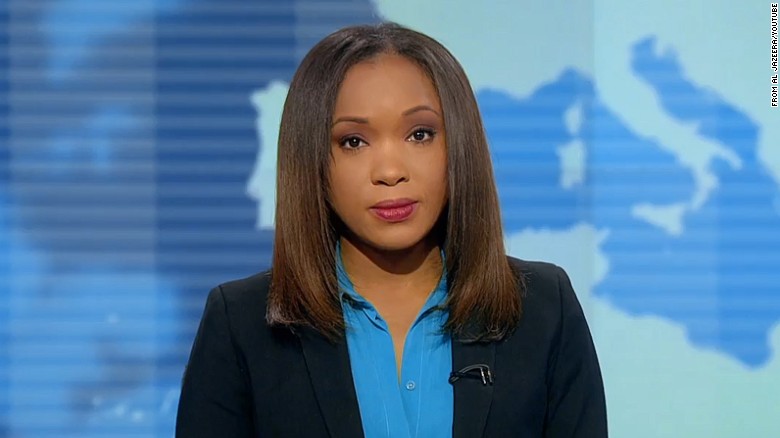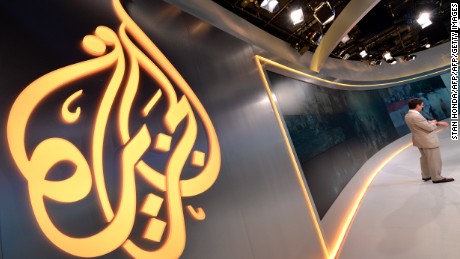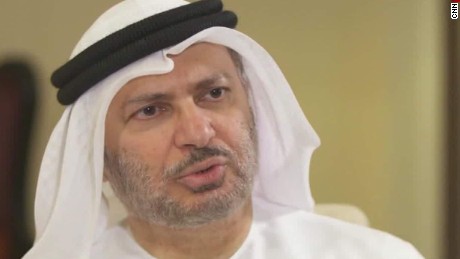Story highlights
- Qatar has until Wednesday to meet list of 13 demands
- Demands include shutting the Al Jazeera media network
(CNN)Qatar's foreign minister has delivered an official response to a list of demands from the Saudi-led bloc ahead of a Wednesday deadline.
It's the latest development in the rift between Qatar and four Arab states. Envoys worked steadily this weekend to tackle the crisis, a surprising rupture that began last month and spawned diplomatic tensions throughout the region.
In Kuwait, Sheikh Mohammed bin Abdulrahman Al-Thani delivered the letter from the ruler of Qatar, Sheikh Tamim bin Hamad Al Thani, to the Emir of Kuwait, Sheikh Sabah Al-Ahmad Al-Jaber Al-Sabah, who has been the main mediator during this crisis. The letter's contents are not yet known.
Saudi Arabia, the United Arab Emirates, Bahrain and Egypt agreed late Sunday to a request from the Emir to extend by 48 hours the deadline for meeting their demands.
The four countries abruptly suspended diplomatic relations and cut off land, sea and air travel to Qatar on June 5, accusing it of supporting terrorism and destabilizing the Gulf region. Qatar has rejected the accusations, calling them "unjustified" and "baseless."
The coalition later gave Qatar 10 days to meet its list of 13 demands -- including shutting down the Al Jazeera media network, reducing diplomatic ties to Iran and cutting ties with terrorist organizations -- with a deadline of July 3.
The Saudi Ministry of Foreign Affairs said a new deadline to agree to the demands had been issued and would expire early Wednesday. Foreign ministers from the Saudi-led bloc are scheduled to meet the same day in Cairo.
Saudi Arabia's Foreign Minister Adel al-Jubeir called the coalition's list of demands "non-negotiable" last week. But over the weekend, Qatar's foreign minister said the list had stipulations that couldn't be met and was "made to be rejected."
Can Qatar withstand the pressure?
It is unclear what difference the extension to the deadline will make.
Mehran Kamrava from Georgetown University's School of Foreign Service in Qatar told CNN Monday he doubted there were many areas for compromise in the list of demands, which he said had "larger goals" behind them.
The states have also demanded that Qatar cut ties to extremist organizations including the Muslim Brotherhood and Hamas. But Kamrava said Hamas was one area where Qatar might be able to give. Hamas leadership is based in Qatar and could conceivably find another home, he said.
"But I think demands such as the closure of Al-Jazeera, the payment of reparations and a number of other demands were really made not to be met -- they're untenable," he said.
Kamrava said the Emiratis had already threatened to deny contracts to businesses doing business in Qatar. He said he believes "the next step is likely to be a ratcheting up of pressure on Qatar."
"Qatar has a number of tools in its toolbox to withstand the pressure. For example it's got robust investments, it has healthy foreign reserves and now it is getting supplies -- foodstuffs and other essential goods -- from Turkey and Iran," he said.
"It's the Qatari business community that is suffering. A business community that has multiple roots in places like Dubai and in Saudi Arabia, and I think that's the critical point -- how long will the business community in Qatar remain behind the government's position."
The states have told Qatar it must stop interfering in their affairs and end the practice of giving Qatari nationality to their citizens and say that the oil-rich state must pay them reparations for damages or costs incurred because of Qatari policies.
How is the US involved?
US President Donald Trump spoke with King Salman bin Abdulaziz Al Saud of Saudi Arabia, Crown Prince Mohamed bin Zayed Al Nahyan of Abu Dhabi, and Emir Tamin bin Hamad Al Thani of Qatar Sunday, the White House said.
"On the calls, President Trump addressed his concerns about the ongoing dispute between Qatar and some of its Gulf and Arab neighbors. He reiterated the importance of stopping terrorist financing and discrediting extremist ideology," it said in a statement.
Russia has also stepped into the standoff.
The Kremlin said Russian President Vladimir Putin spoke to both the Emir of Qatar and the King of Bahrain on Saturday and called for a diplomatic resolution to end the crisis.
"Vladimir Putin stressed the importance of political and diplomatic efforts aimed at overcoming the disagreements and normalizing the current complicated situation," the statement said.
US military base
Last week, Qatar's Foreign Minister Al-Thani met with US Secretary of State Rex Tillerson in Washington.
Tillerson has repeatedly called for dialogue between countries on both sides of the diplomatic rift, advocating an evenhanded approach to the standoff.
Qatar is a US ally and the US maintains a large military base there, home to some 11,000 personnel.
US Sen. John McCain met the Crown Prince of Abu Dhabi, Sheikh Mohamed bin Zayed Al Nahyan, and other UAE officials in Abu Dhabi on Saturday.
McCain -- who is the Senate Armed Services Committee chairman -- was accompanied by four other US senators, the official Emirates News Agency reported.
UAE Minister of State for Foreign Affairs Anwar Mohammed Gargash told CNN's International Diplomatic Editor Nic Robertson that the UAE had assured McCain the US base in Qatar would be unaffected by the standoff and would be able to continue operating without interruption.
Gargash said he expected the standoff with Qatar to last for months.
He said he foresaw a role for US and European states to monitor any future agreement with Qatar in the areas of finance, refuge, incitement and political support for terrorists.
The monitors would make sure Qatar was working to take the following steps: Money did not reach terrorists; the legal process was taken against designated terrorists living in Qatar; Al-Jazeera and others did not incite terrorism or extremism; and terror groups were not aided politically by or from Qatar, Gargash said.







